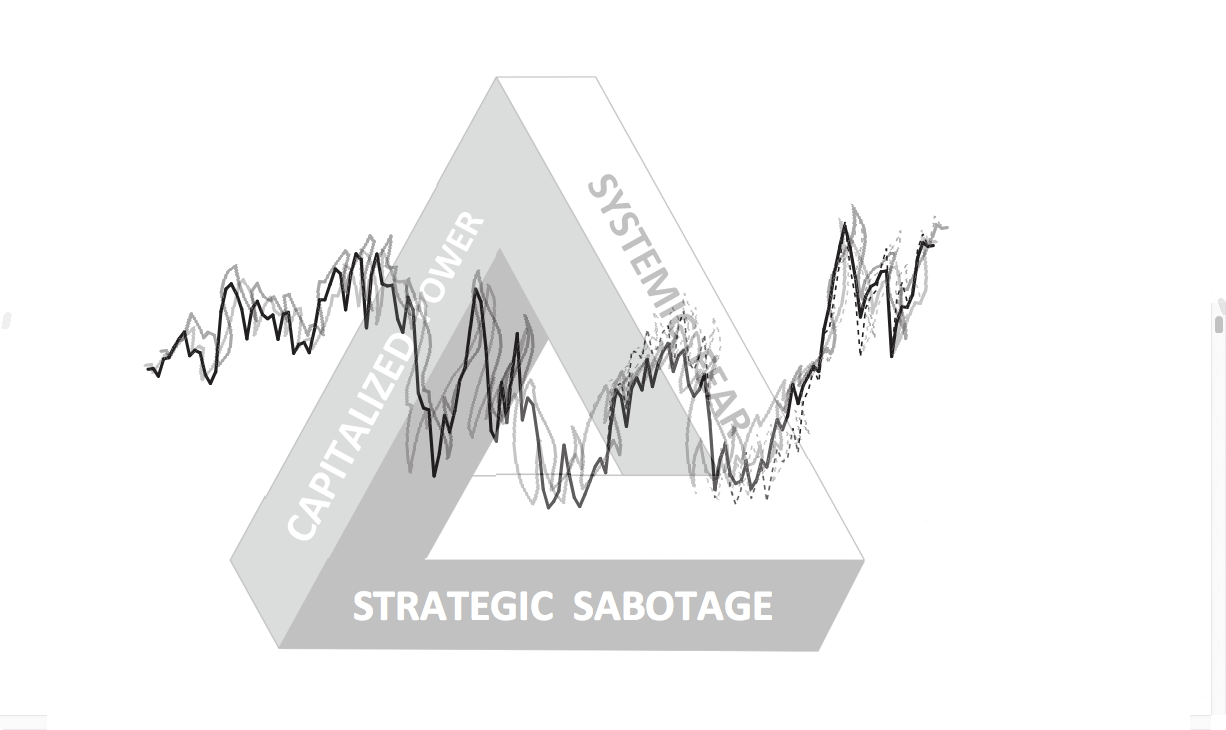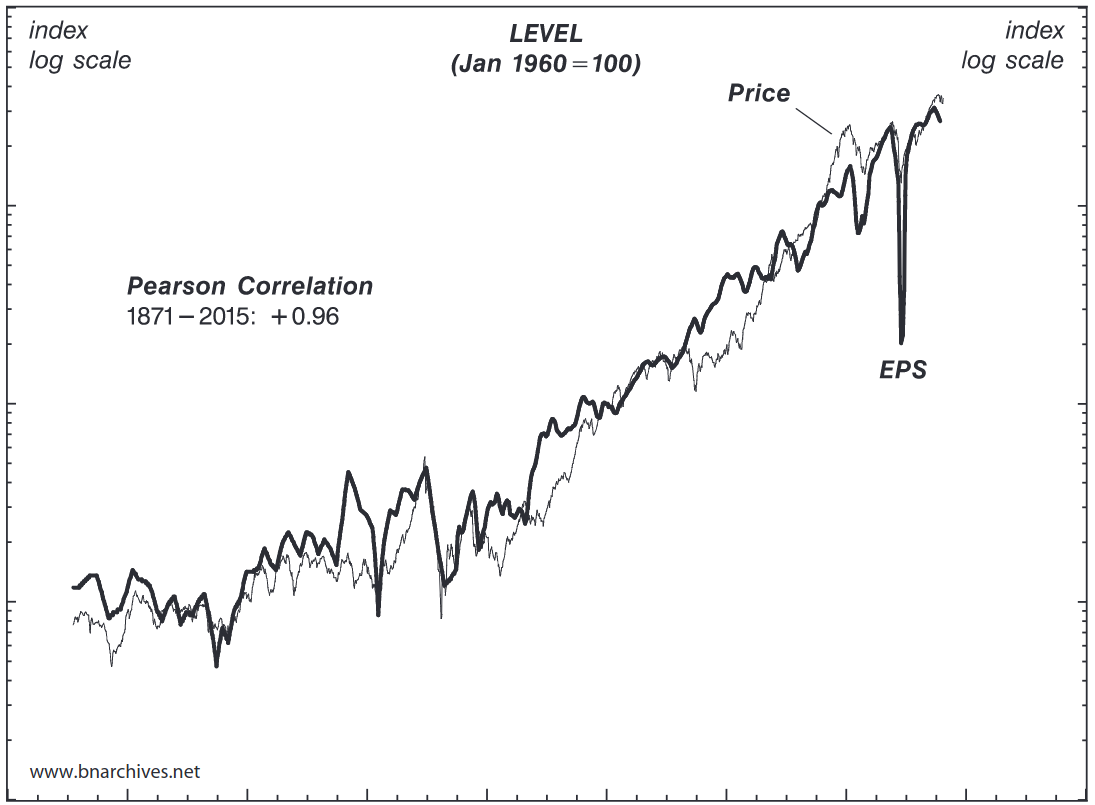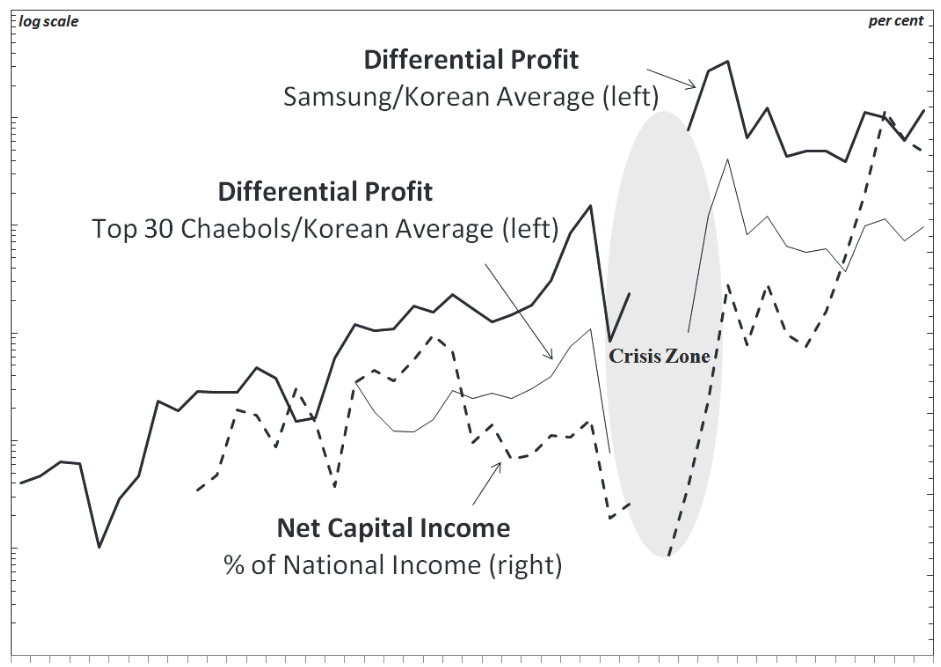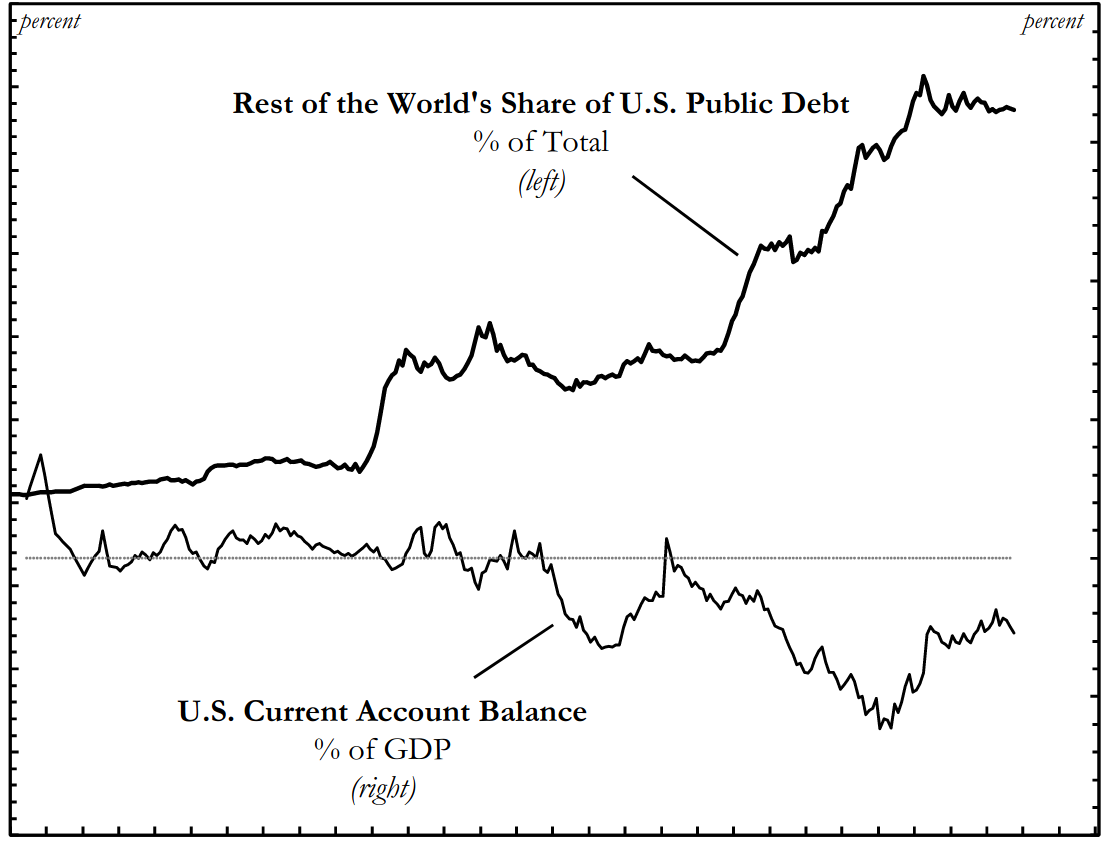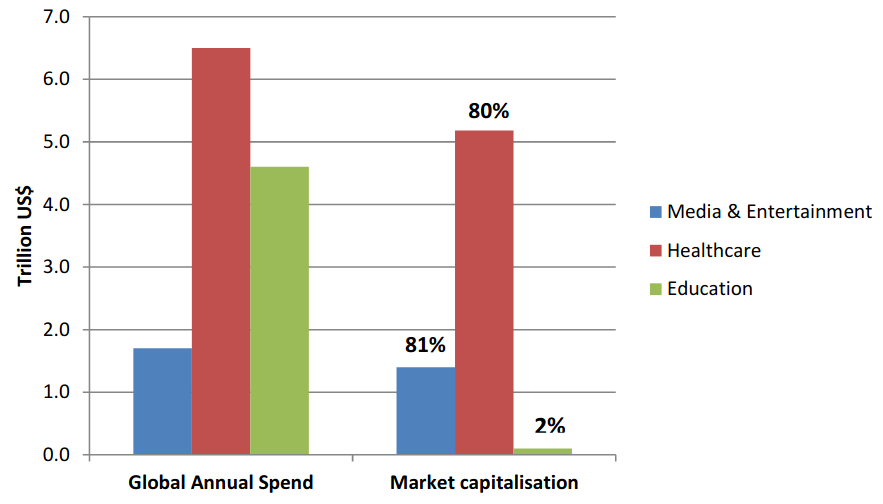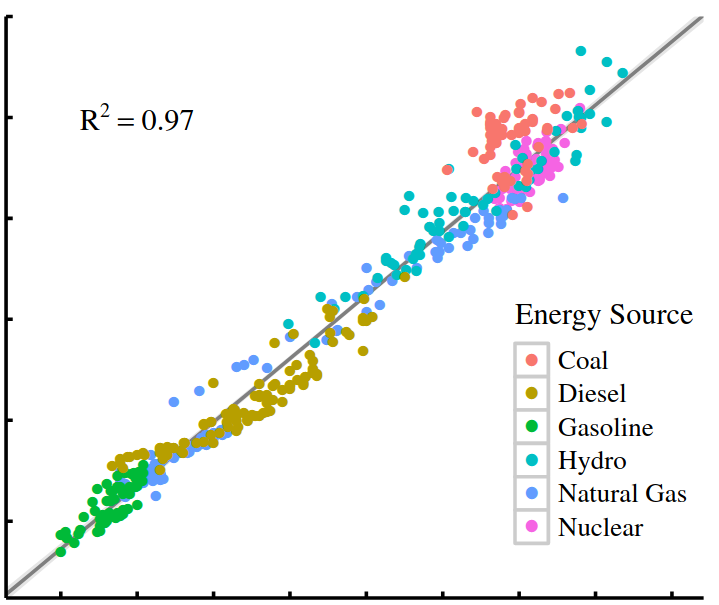Click here for the official call. Submissions deadline: December 31st, 2016 Submission guidelines: http://www.recasp.com/contact Contact: Tim Di Muzio, University of Wollongong, Australia (tdimuzio@uow.edu.au) Alternative location: http://bnarchives.yorku.ca/488/
Continue ReadingTrump, US Public Debt, and the Future of Global Financial Power
Sandy Hager The following post is based loosely on my presentation at the first annual Thammasat University-Conference for Asia Pacific Studies in Phuket, Thailand (8-9 December 2016). What a difference a few months makes. This past summer I published a piece in the European Journal of International Relations on the role of US Treasury securities […]
Continue ReadingBichler & Nitzan, ‘A CasP Model of the Stock Market’
Abstract Most explanations of stock market booms and busts are based on contrasting the underlying ‘fundamental’ logic of the economy with the exogenous, non-economic factors that presumably distort it. Our paper offers a radically different model, examining the stock market not from the mechanical viewpoint of a distorted economy, but from the dialectical perspective of […]
Continue ReadingNo. 2016/07: Bichler & Nitzan, ‘A CasP Model of the Stock Market’
Abstract Most explanations of stock market booms and busts are based on contrasting the underlying ‘fundamental’ logic of the economy with the exogenous, non-economic factors that presumably distort it. Our paper offers a radically different model, examining the stock market not from the mechanical viewpoint of a distorted economy, but from the dialectical perspective of […]
Continue ReadingPark & Doucette, ‘Financialization or Capitalization? Debating Capitalist Power in South Korea in the Context of Neoliberal Globalization’
Abstract The article reviews debates concerning financialization in South Korea, with a focus on ongoing arguments between liberal, post-Keynesian, institutionalist and Marxist economists. It argues that post-Keynesian and institutionalist perspectives in particular neglect important class processes through which the financial circuit operates within the Korean economy, especially the power of Korea’s large, family-led conglomerates, or […]
Continue ReadingDi Muzio, ‘Energy, Capital as Power and World Order’
Abstract Until late, the subject of energy and its importance for capitalism and the constitution and reconstitution of world order has been sorely overlooked in the international political economy (IPE) literature. Indeed, only two of the major textbooks in IPE have chapters on energy. This is also true of the literature known as classical political […]
Continue Reading2016 CasP Conference on ‘Capital as Power: Broadening the Vista’
The theory of capital as power (CasP) offers a radical alternative to mainstream and Marxist theories of capitalism. It argues that capital symbolizes and quantifies not utility or labour but organized power writ large, and that capitalism is best understood and challenged not as a mode of consumption and production, but as a mode of […]
Continue Reading'Pseudorational Control and the Magma of Reality' – A Seminar Presentation by Ulf Martin
A seminar presentation by Ulf Martin York University, September 27, 2:30-5:30pm 1 INTRODUCTION. – 2 POWER. From magma ontology to the dual project of modernity. Some etymology. Gestaltungsvermögen. Magma concept (Castoriadis). Magma ontology. The radical imagination of the psychic monad. The social imaginary significations (SIS) of the socio-historical. Gestaltungsvermögen, magma ontology, capital. Autonomy versus Heteronomy. […]
Continue ReadingNo. 2016/6: Pitts, ‘Capital as Power in the Creative Industries’
Abstract Using Nitzan and Bichler’s understanding of the dissonant relationship between creativity and power and business and industry, this paper investigates the rhythms of freelance creative work. It reports findings from interviews conducted with freelancers working in the Dutch creative industries. The findings suggest that freelancers enjoy more responsibility and autonomy than formal employees. But this autonomy represents a risk […]
Continue ReadingLogics AND the Logic of Accumulation
DT Cochrane The presiding logic of capitalism is that of accumulation. CasP re-emphasizes and re-theorizes accumulation as ‘Moses & the Prophets’ of capitalism. However, Nitzan and Bichler’s theorization severs the link between accumulation and productivity that grounds both mainstream and critical value theory. Instead, they emphasize the meaning of the nominal quantities of capital as […]
Continue ReadingNo. 2016/5: Cochrane, ‘Disobedient Things: The Deepwater Horizon oil spill and accounting for disaster’
Abstract Analysis of the Deepwater Horizon disaster and the accumulatory decline of BP demonstrates both the analytical efficacy of the capital-as-power (CasP) approach to value theory, and the irreducible role of objects in the process of accumulation. Rather than productivity per se, accumulation depends on control of productivity. Owners’ control is over both the human […]
Continue ReadingHager, ‘A Global Bond: Explaining the Safe Haven Status of U.S. Treasury Securities’
Abstract This article offers new theoretical and empirical insights to explain the resilience of U.S. Treasury securities as the world’s premier safe or “risk free” asset. The standard explanation of resilience emphasizes the relative safety of U.S. Treasuries due to a shortage of safe assets in the global political economy. The analysis here goes beyond […]
Continue ReadingKivisto, ‘Capital as Power and the Corporatization of Education’
Abstract Building on the definition of critical education residing in the crossroads of cultural politics and political economy, this theoretical article offers an inquiry into the intersection between critical education research and the central ritual of contemporary capitalism – capitalisation. This article outlines four current approaches in education research literature to the corporatisation of education. […]
Continue ReadingHager, ‘Public Debt, Inequality, and Power: The Making of a Modern Debt State’
Abstract Who are the dominant owners of US public debt? Is it widely held, or concentrated in the hands of a few? Does ownership of public debt give these bondholders power over our government? What do we make of the fact that foreign-owned debt has ballooned to nearly 50 percent today? Until now, we have […]
Continue ReadingNo. 2016/04: Fix, ‘Energy and Institution Size’
Abstract Why do institutions grow? Despite nearly a century of scientific effort, there remains little consensus on this topic. This paper offers a new approach that focuses on energy consumption. A systematic relation exists between institution size and energy consumption per capita: as energy consumption increases, institutions become larger. I hypothesize that this relation results […]
Continue ReadingNo. 2016/03: Di Muzio & Dow, ‘Uneven and Combined Confusion: On the Geopolitical Origins of Capitalism and the Rise of the West’
Abstract This article offers a critique of Alexander Anievas and Kerem Nişancioğlu’s How the West Came to Rule: The Geopolitical Origins of Capitalism. We argue that while all historiography features a number of silences, shortcomings or omissions, the omissions in How the West Came to Rule lead to a mistaken view of the emergence of […]
Continue ReadingProtecting the Game from the Players
DT Cochrane In certain circles, Charlie Munger is a demi-god. He is the vice-chairman of Berkshire Hathaway, the holding company controlled by the god of markets himself, or rather, Warren Buffett. The words spoken and written by both Buffett and Munger are treated as divine insights on the way the world works or ought to […]
Continue ReadingCorporate Taxation and the Power Theory of Value
Sandy Hager This is a (longer) draft version of an article that is under consideration for the newsletter of the Tax Justice Network: Tax Justice Focus. Taxation is all about power. We are constantly reminded of this when flipping through any newspaper (or browsing any news website). The Panama Papers, the stuff of which front […]
Continue ReadingEconomics and Power: An Historical Perspective – Conference Call for Papers
Italian Association for the History of Economic Thought 14th Conference – Call for Papers; 28-30 April 2016 Università del Salento (Lecce, Italy) The Italian Association for the History of Economic Thought invites historians of economic thought, economic historians, economists and interested scholars to present proposals for papers and/or sessions along the lines listed below, or […]
Continue ReadingNo. 2016/02: Cochrane, ‘Why Diamonds and De Beers?, or The Need for Accumulation Studies’
Abstract I successfully defended my dissertation in December. This served as the introductory presentation for the defence. In it, I explain what I tried to do with the dissertation, the methods I used, and the larger project I hope it is initiating. Specifically, I suggest there is a need for accumulation studies as a field […]
Continue Reading


